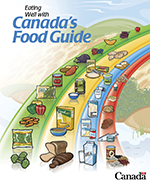2019 Canadian Food Guide
The Food guide makes some recommendations specific to all life stages, including for seniors. Specific recommendations on how to meet nutrient requirements and what they are exactly stays a bit murky. To clear that up, the food guide recommends that “Individuals with specific dietary requirements may need additional guidance or specialized advice from a dietitian.” And in here lies the answer. About half of the population 65+ and older have at least one chronic disease, meaning that half of that population indeed may have very specific dietary requirements. This is why staying...
Read MoreDo I have to eat rabbit food?
Okay,so you are 70-something or older. I have heard it all before: “Kale and corn, that’s pig food!” and “There is nothing good in lettuce.” You don’t have to eat bowls full of rabbit food daily to meet your daily requirements. There you have it, I said it. Truth is, not all of us can tolerate, chew or swallow the raw stuff, or stuff that has tough skins and stems in them. However, this does not mean you can eat cookies, tea and toast all day either. You do need to eat a balanced diet with vegetables, fruit and meat or meat alternatives. We all know this, yet, the numbers of...
Read MoreReduce Care Giver Stress
Being a caregiver to a senior often leads to stress and may also weaken physical health. It also increases financial responsibility and pressure. Many caregivers report feeling tired, worried, anxious, overwhelmed, or isolated. Specifically, meal preparation, cleaning and lack of support are the leading causes of stress among caregivers of seniors. In 2009, it was reported that 34% of Canadians aged 65 or older are at nutrition risk. This emphasizes the need to better support family care givers to provide nutrition care to senior parents. Why isn’t it obvious? Many seniors experience poor...
Read MoreTaste Preferences Change
Recently I facilitated a nutrition workshop at a senior community centre about managing chronic disease symptoms. It was a diverse group of seniors and adult children of seniors, and there was no shortage of interesting questions. One daughter and mother team stated that it was hard to cook in the household, because mother does not enjoy what I cook like she used to. This comment resonated with more participants in the workshop, and therefore I like to share this topic with you. Taste changes are common. In our infant years, the ability to recognize and enjoy flavors is developed. As we...
Read MoreA question from mother
Why do I still need to eat healthy? When you have an elderly parent, encouraging healthy eating may seem a bit condescending. After all, she is over 85 years old, and must have been doing something right all this time? Why shouldn’t she just eat what she wants, or skip a meal when not feeling hungry? In fact, elderly seniors need more nutrients at a time that they need less calories. So, every bite counts. Proteins are important to maintain lean muscles to keep your strength, balance, and ability to walk. Losing lean muscle mass increases risk for a fall. The current recommendation for...
Read MoreAre You Dehydrated?
The “I only drink when I’m thirsty”approach can trip you up. The summer is almost over. The sweating and basking in the sun moments are still fresh in our memory, and we may even long for the cooler breeze of early fall. You’ve heard it all summer long: stay hydrated, drink 8 to 12 glasses a day. But don’t think to pack that habit away along with your shorts and summer attire. Hydration is important all year long. Research has shown that active and healthy seniors are managing their hydration well, evidenced by little difference in hydration status compared to younger folks....
Read MoreMalnutrition, double trouble.
Malnutrition in the community may not be always visible. Yet, it is a big problem: one out of two people admitted to hospital are in a malnourished state. People who have a chronic disease and are older than 65, are especially at risk for malnutrition. This is because when you suffer from a chronic disease and it is getting worse, you are not feeling well, and not feeling inspired to cook. You may have physical limitations curbing your ability to prepare a good meal. It is troublesome when you have difficulty cooking meals. But when you have a chronic disease, it means double trouble: your...
Read MoreAn ongoing daily challenge
Is mealtime a struggle for you and your loved one with dementia? Anger, frustration, or refusing foods are signs that your loved one may be overwhelmed. There are several reasons your loved one may not enjoy mealtime anymore. The amount of food in front of them, background noises, distracting design patterns on the serving plate, or even the use of utensils may add to the confusion. Here are a few tips to help. Remove distractions. Turn of the TV and phones. Use a plain but colored plate; blue and red work well. The contrast between the plate color and the food makes is easier to see what...
Read More

